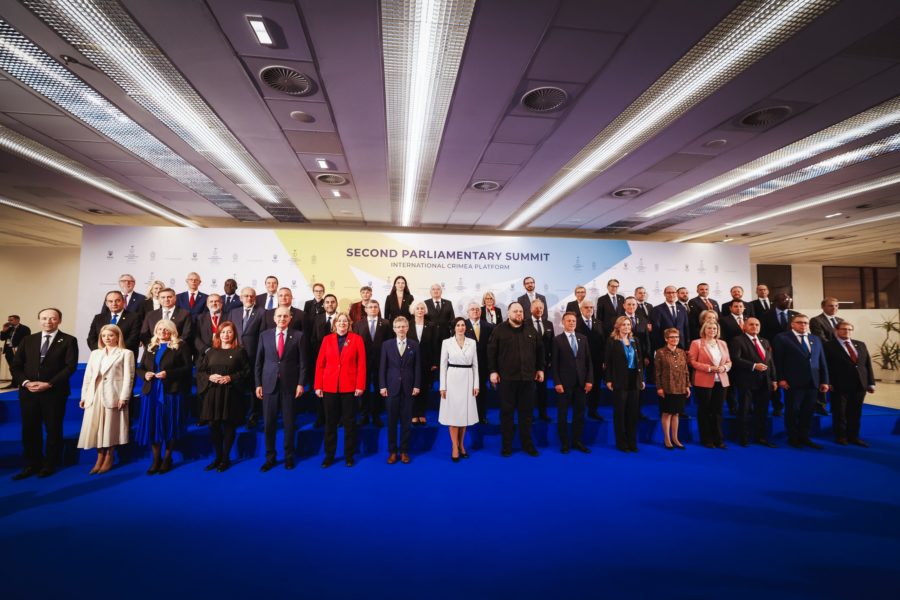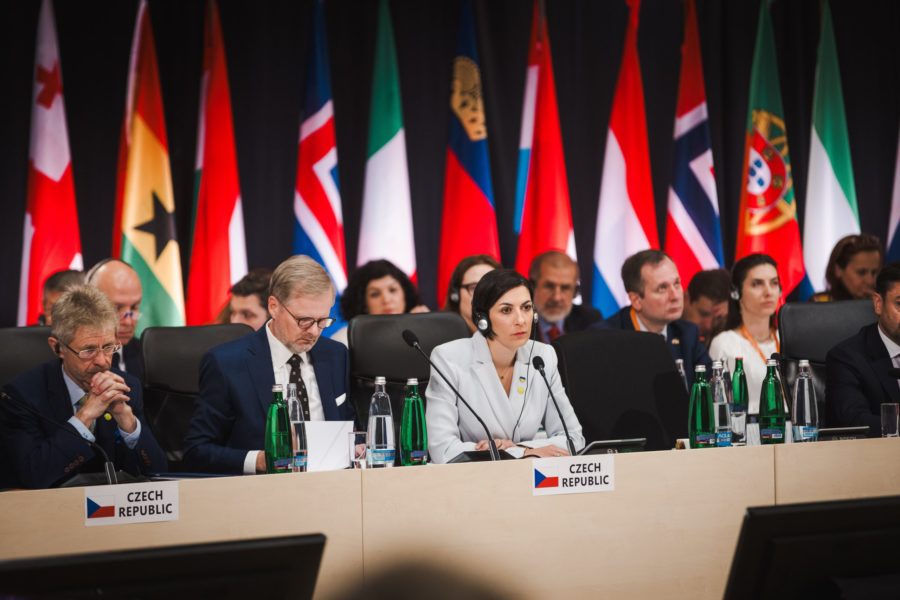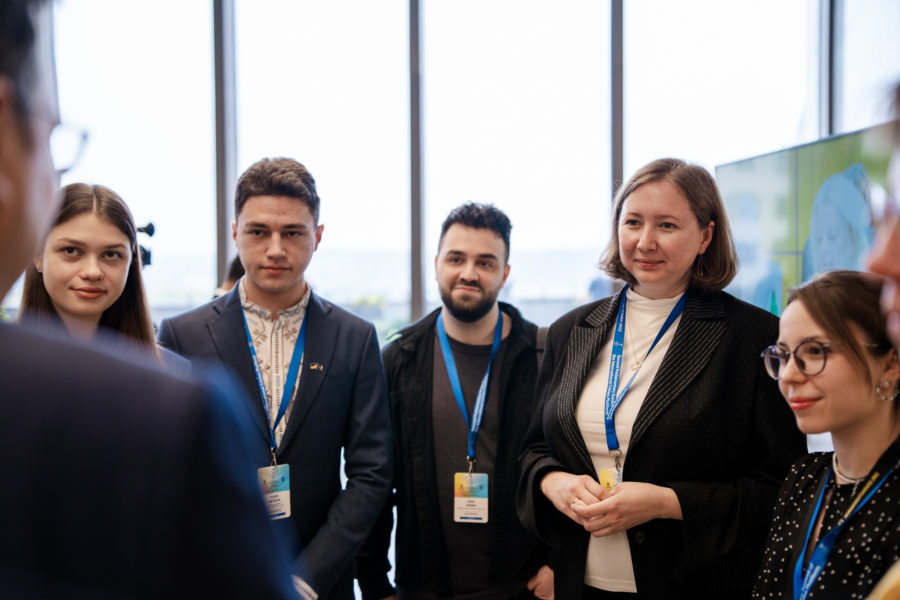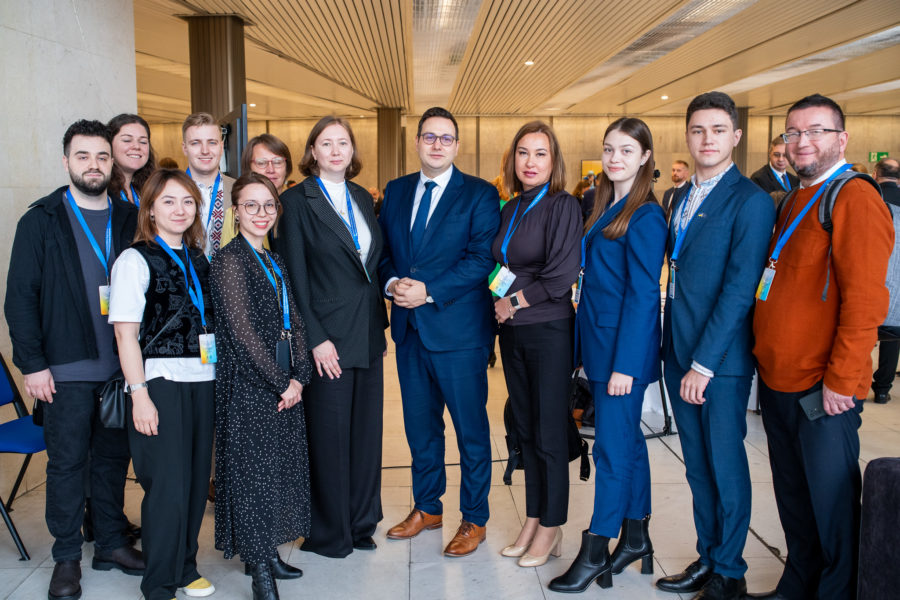Second Parliamentary Summit of Crimea Platform in Czech Republic: ZMINA joins its holding
On October 24, Prague hosted the Second Parliamentary Summit of the Crimea Platform which was attended by representatives of 51 world countries and six international organizations. Human Rights Center ZMINA joined holding the Summit.

In particular, representatives of the European Parliament, the Parliamentary Assembly of the Council of Europe, the NATO Parliamentary Assembly, the OSCE Parliamentary Assembly, the Inter-Parliamentary Union, the ASEAN Inter-Parliamentary Assembly participated in the Summit.
During the opening ceremony, President of Ukraine Volodymyr Zelensky thanked the Czech Republic for supporting Ukraine and holding the Summit.
Within the framework of the event, the Joint Declaration of the Summit participants was signed which reaffirmed the territorial integrity of Ukraine within its internationally recognized borders, including Crimea. Also in the declaration, the participants condemned the so-called referenda and elections in the temporarily occupied territories of Ukraine.
The Summit participants underscored the importance of supporting the provision of political, diplomatic, military, security, financial, humanitarian and other assistance to Ukraine, as well as supporting Ukraine on its path toward EU membership.

In addition, panel discussions organized by civil society representatives took place during the event.
The first discussion concerned the liberation of Crimea. The participants assessed the likely consequences of the liberation of the peninsula by military means and the impact of de-occupation on the Black Sea region. The speakers also talked about the strategy of strengthening Ukraine’s military potential with the support of Western partners.
Luboš Veselý, Special Envoy for Russia Policy Coordination (Ministry of Foreign Affairs of the Czech Republic) emphasized that Crimea would not be automatically de-occupied, and Ukraine and international civil society must join forces to make this happen in the near future.
“This war will not end if Crimea is not liberated. It’s not just a matter of law, it’s a matter of national security,” he added.

The second panel discussion was devoted to the topic “Restoration of justice and guarantees of non-repetition of Russian aggression”. The speakers focused on the consequences of the occupation, discussing the mechanisms of prosecution for the committed crimes, compensation for damages and the protection of the rights of the indigenous population.
Tamila Tasheva, Permanent Representative of the President of Ukraine in Crimea, noted that many Russian citizens came to Crimea after the occupation, although the Ukrainian authorities at various levels declared that this was illegal. She also added that punishing all people in Crimea was not the goal but people who made decisions at the level of authorities must be held accountable.
As the speakers pointed out, the preparation for de-occupation is a priority area of the Crimea Platform’s activity but certain problems cannot wait until Crimea is liberated. For example, the militarization of children in Crimea and special camps where they are prepared as a future mobilization resource for wars initiated by the Russian Federation.

Maria Sulialina, head of the Almenda Center for Civic Education, drew attention to the problem of militarization of children in Crimea: “In these three months alone, 170,000 Ukrainian children were militarized and trained in summer camps, and these are not only children from Crimea. We are also talking about children from other occupied territories: Zaporizhzhia, Kherson and Donetsk regions. They prepare children not only for the war in Ukraine but also for other armed conflicts.”
If you have found a spelling error, please, notify us by selecting that text and pressing Ctrl+Enter.















